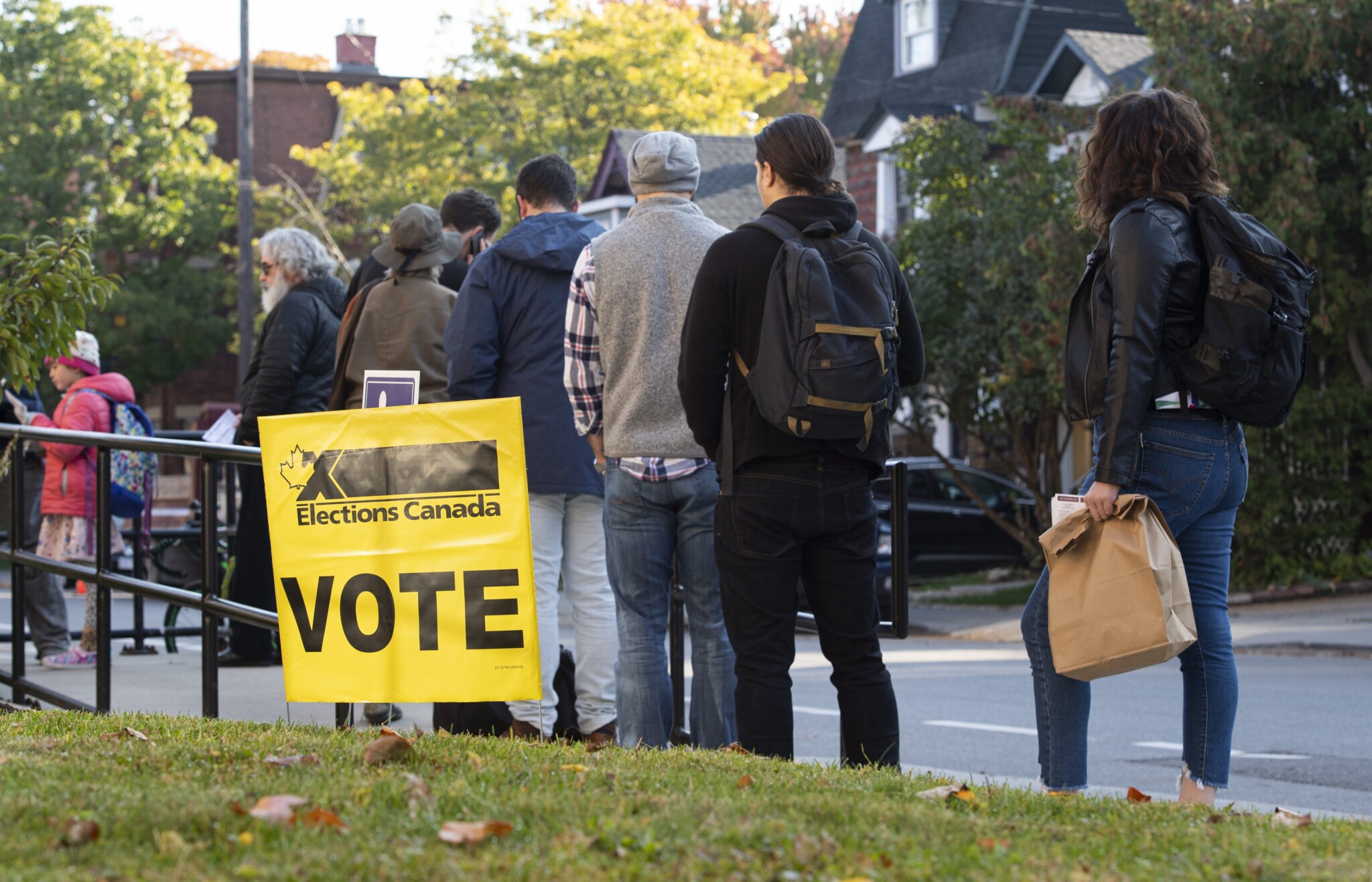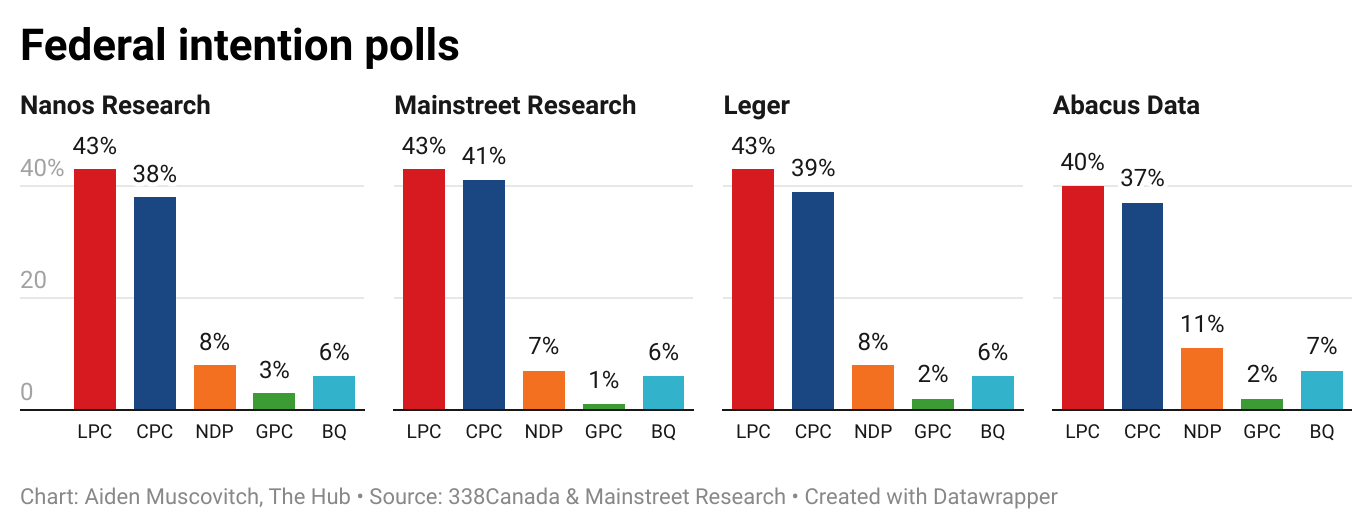This is The Week in Polling, your Saturday dose of interesting numbers from top pollsters in Canada and around the world, curated by The Hub. Here’s what we’re looking at this week.
Liberals ahead of the Conservatives as election day nears
With election day only two days away, the Liberals are slightly ahead of the Conservatives nationally. Most major pollsters, including Nanos, Mainstreet, Leger, and Abacus, find the Liberal lead sitting between 2 and 5 percent.
The current national polling average has the Liberals at 42 percent, the Conservatives at 38 percent, and the NDP at 9 percent. This would lead to a Liberal majority government, with an estimated 186 seats compared to the Conservatives’ 125 according to the 338 Canada election simulator.
In January, the Liberals trailed the Conservatives by around 20 percent. The 338Canada national polling average gave the Tories a 25 percent lead.
A major pollster hasn’t had the parties tied in five days. That poll had the Liberals and Conservatives neck and neck at 40 percent.
None of the current national polls would produce anything short of a Liberal minority government. If the Conservatives and Liberals were tied at 40 percent, a Tory minority government would be possible at around 159 seats to the Liberals’ 152. That would occur if the NDP had around 9 percent support and the Bloc Québécois had 6 percent.
“Most polls, including ours at Abacus Data, show a tight race. For the past three weeks, we’ve consistently had the Liberals ahead of the Conservatives by 2 to 3 points nationally. Among those who have already voted or are most certain to vote, the gap grows to 5. That may not sound like much. But in our electoral system and in the current context, that would be plenty for the Liberals to win a majority,” Abacus Data’s CEO David Coletto wrote in The Hub.
“To win as many seats as the Liberals, the Conservatives don’t just have to match them in national support—they have to substantially outperform them,” he contends, focusing on the regional breakdown of Conservative support and the party’s voter efficiency.
Coletto points to the makeup of the Liberal coalition. Grit support is primarily urban, diverse, and stable in vote-rich ridings. The NDP is weaker than normal, which has led to the Liberals consolidating the progressive vote. Furthermore, Carney’s favourables are still high enough to pull in Conservative switchers (predominantly Baby Boomers) who are concerned about global economic instability and Donald Trump.










